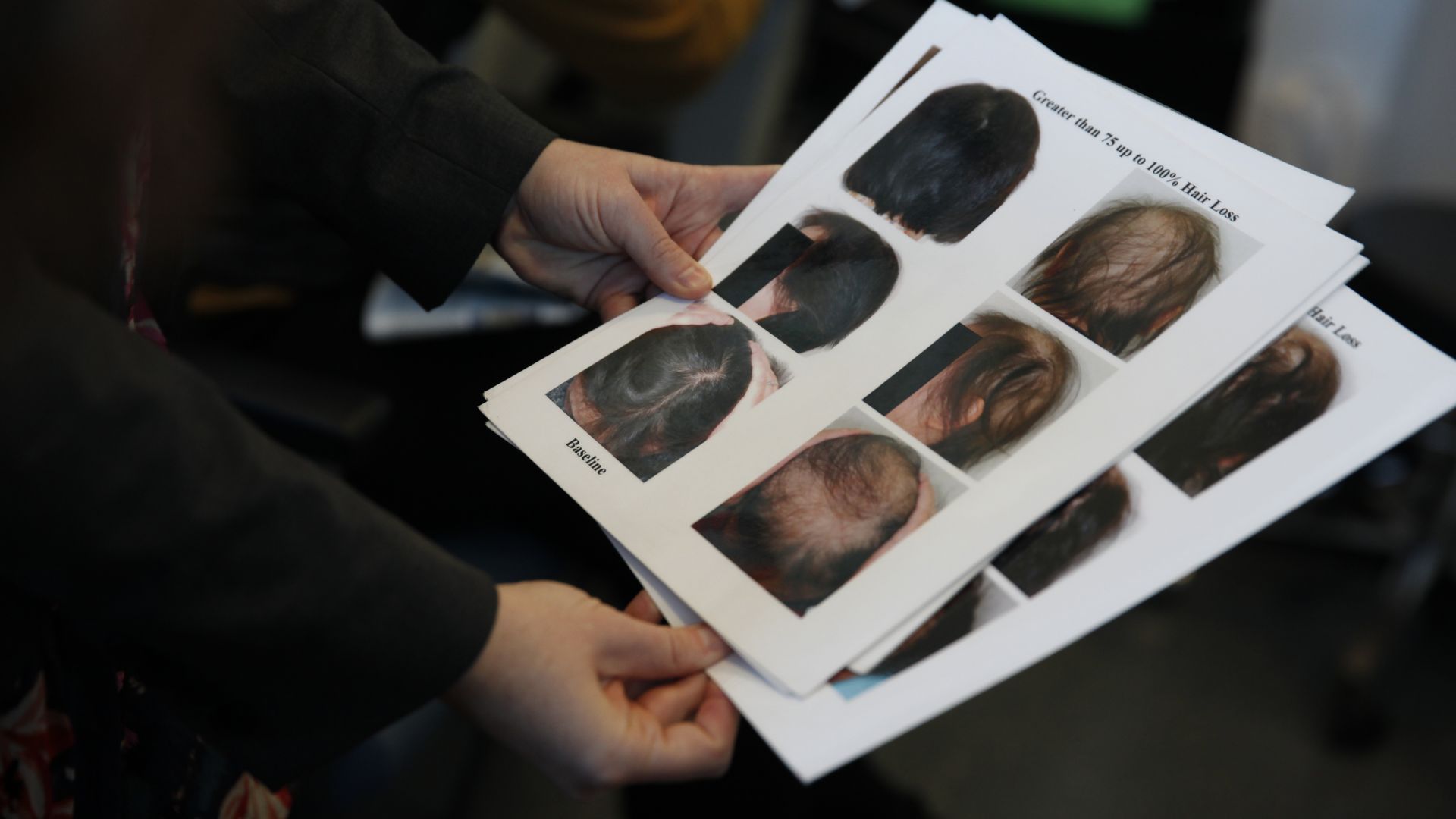Jun 13, 2022 - Health
FDA approves alopecia drug that restores hair growth
Add Axios as your preferred source to
see more of our stories on Google.

Elizabeth Ver Hoeve, UCSF clinical research coordinator, holds standardized photos of different ranges of hair loss. Photo: ea Suzuki/The San Francisco Chronicle via Getty Images
